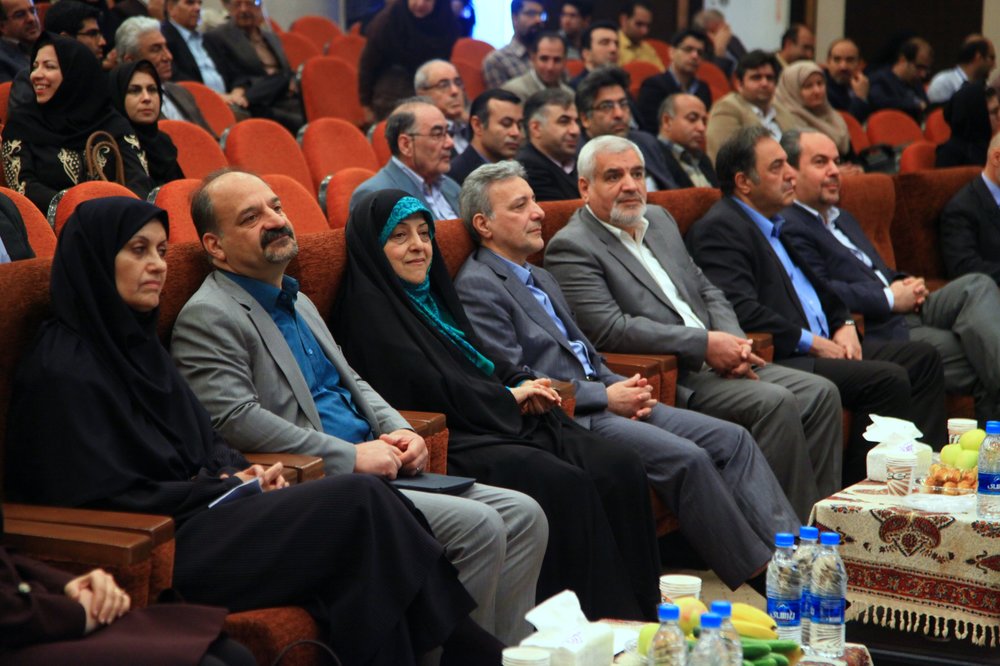Conference on environmental pollutants kicks off in Tehran

TEHRAN — The first international conference on environmental pollutants sampling and monitoring kicked off in Tehran on Sunday.
By Maryam Qarehgozlou
TEHRAN — The first international conference on environmental pollutants sampling and monitoring kicked off in Tehran on Sunday.
The conference, co-organized by the Department of Environment (DoE) and the University of Tehran, additionally brought together United Nations Industrial Development Organization (UNIDO), ministries of oil, energy, industry, agriculture, and science, as well as the national standards organization.
The three day conference is comprised of 13 workshops which specifically center on monitoring and sampling environmental pollutants.
New technologies in environmental pollutants sampling, sampling standards of environmental pollutants, sampling methodologies of hazardous pollutants in wastes, online sampling and monitoring methodologies, international protocols and agreements in environmental sampling and monitoring, localizing environmental pollutant sampling and monitoring standards, new technologies on environmental pollutants analysis, global warming and environmental monitoring role and sampling and monitoring of seas are the topics which will be discussed over the conference.
The DoE director, Masoumeh Ebtekar; the DoE deputy director Sa’eed Motesaddi; and the national standards organization director, Nayyereh Pirouzbakht delivered speeches during the opening ceremony of the conference.
Monitoring and sampling fundamental to environmental strategies
Motesaddi explained the significance of monitoring and sampling of pollutants as being the fundamental components of environmental strategies.
“Regular monitoring and sampling of pollutants indicates if we are succeeding in minimizing the pollutants or not or whether they are increasing or decreasing,” he noted.
“What we seek in this conference is to make improvement on the accuracy and validity of the monitoring and sampling measures,” he added.
What DoE accomplished so far
Motesaddi went on to say that “we succeeded in decentralizing monitoring bodies and currently they all have distributed to all the cities across Iran.”
Over the past two years 29 online river monitoring satiation are added to the system and there are 188 air monitoring stations over the country, he highlighted.
Motesaddi also noted that “our dust monitoring stations are now completed with 50 stations for monitoring particles smaller than 2.5 microns in diameter.”
“We are now able to monitor 200 industrial units online and we are hoping to increase the number in the future,” he said.
Air pollution accounts for one death out of seven
Ebtekar warned that based on a report by World Health Organization (WHO) one death out of seven is caused by air pollution and at least 35 million Iranian are affected by air pollution.
“Right now if someone draw blood from us they can detect traces of dioxin in it which can affect and wreck our immune system,” she lamented.
This shows how important monitoring is and it is not just limited to our country but it is one of the important subject matters discussed in Paris climate change conference as well, she said.
Fortunately this conference which particularly aims at training the environmental experts can pave the way for further improvements, she added.
600 environmental standards set by ISO
Pirouzbakht, for her part, pointed that “out of 19,000 standards set by the International Organization for Standardization (ISO) 600 are related to the environment which emphasizes the global importance of the environment.”
Iran’s national standard organization has been working side by side with the DoE for almost three years and plays a key role in promoting sustainable growth, she added.
She also highlighted that after the removal of the sanctions Iran’s standards are approved by the countries in Asia and Oceania.
MQ/MG
